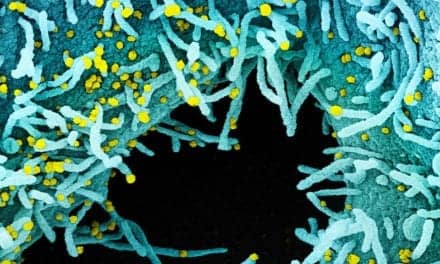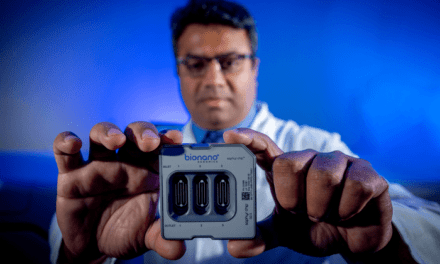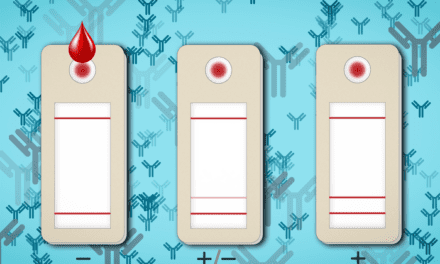AMPEL BioSolutions has announced it has developed a blood test that can detect and predict COVID-19 severity in patients while also determining the best treatment options for each specific case. The company’s new approach, through a simple blood test, will ultimately accelerate the means of providing effective treatments to the right people at the right time and potentially stem the serious illness caused by SARS-CoV-2 infection that can lead to lung damage or death.
AMPEL’s new genomic test, known as CovGENE, has been validated by a longitudinal study in partnership with physicians in the Division of Pulmonary and Critical Care Medicine of the University of Virginia Medical Center. With analysis of patients admitted to the UVA Intensive Care Unit, CovGENE demonstrated COVID-19 severity with a greater than 90% rate of accuracy. CovGENE, can be administered by drawing a patient’s blood to quickly ascertain whether a Covid-19 patient will have a mild, moderate, or severe outcome. The findings are detailed in a paper published by Frontiers in Immunology.
“This unique collaboration with our colleagues from the University of Virginia has provided an easy and novel means to assess an individual patient’s response to the SARS-CoV-2 virus and predict the clinical outcome,” says Peter Lipsky, MD, AMPEL chief medical officer, CEO and co-founder. “Now that this unique approach has been validated, we look forward to its rapid development as a precision medicine tool that can improve the outcome of patients with Covid-19 and reduce the number of hospitalizations, especially the most vulnerable.”
AMPEL is currently working to secure a partnership with a diagnostic testing company to make CovGENE available to the general public as different variants continue to emerge across the globe and with winter around the corner, when major spikes can occur. CovGENE also holds promise in predicting both COVID-19 severity and long COVID, an elusive diagnosis the medical community is still trying to fully understand, according to the company.
“We have come far in the prevention and treatment of COVID-19 in the past two years. Regardless, we still struggle to identify patients at highest risk for severe disease. Our study uses a gene analysis approach to identify an immune cell signature, distinct from other respiratory illnesses that correlates with worse outcome,” said Alexandra Kadl, MD, lead author from the University of Virginia Division of Pulmonary and Critical Care Medicine. “This knowledge will help evaluate patients’ immune profile with commonly, readily available assays to identify patients at risk for bad outcome that would benefit from closer monitoring and advanced therapies to aid their recovery.”





